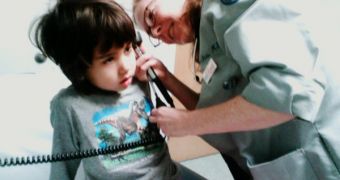People working in the healthcare system are oftentimes so “immune” to the jobs they do that they forget to manage their patients' emotions. This holds true when imparting bad news, such as the failure of a surgery, and even in the case of mothers suffering from post-natal depression. The second condition is relatively common in women who just had a baby, and its incidence increases dramatically after a second birth. Norwegian experts argue that training in emotional intelligence could make healthcare personnel more likely to recognize such conditions, and treat them accordingly, PhysOrg reports.
“The health services often fail to recognize women who suffer from postnatal depression or anxiety. Many of the women I interviewed had experienced rejection and a lack of understanding from health personnel,” University of Stavanger Associate Professor Kristin Akerjordet says. As part of her PhD thesis, the expert investigated the health status of about 250 women, all of which had recently given birth. She interviewed about 30 of them, and learned that 50 percent (15) had suffered, or were suffering from postnatal conditions such as depression.
She adds that, on average, about 13 to 16 percent of women tend to suffer from the condition. However, in a worrying trend, a second birth sees these rates climb to as high as 30 to 40 percent of all women. Scientists at the university' Department of Health Studies have tried since 2006 to determine the best possible ways the public health service could take in ensuring that the mental health of postnatal women is taken care of appropriately. One of the best solutions they could come up with was emotional intelligence (EI)-trained medical personnel.
“EI enables us to form good relationships with other people, thereby improving the quality of our performances as nurses, midwives and doctors. EI is an important factor in promoting good care and effective health service management,” Akerjordet reveals. Groups of health workers using EI could detect which women are at the highest risk of developing postnatal depression in the near future, and work with them towards identifying the root causes of the condition. In addition to being helpful in the short run, this approach could also see a drop in the incidence of depression cases following a second or third birth.

 14 DAY TRIAL //
14 DAY TRIAL //